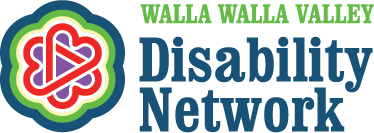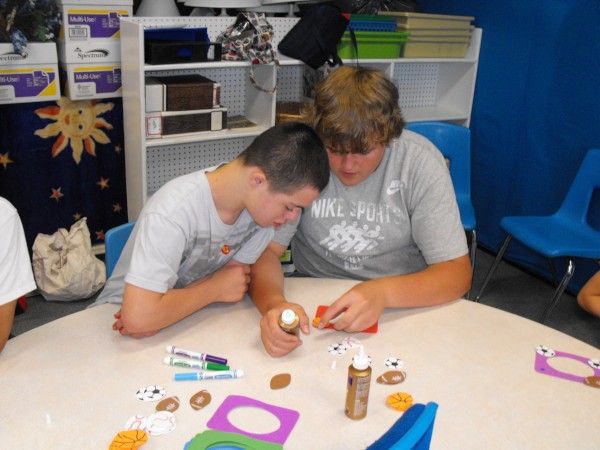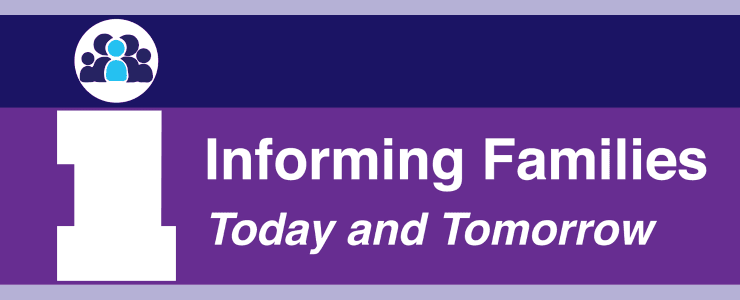General Information
-
During these years that your family member is immersed in school, make the most of the support they have to focus on emerging independent living skills, employment opportunities, and connections to your community. Typically, after age 21, school activities and school based services end. It is important to learn as much as you can about the road ahead so that you can begin to prepare your family member for a full life after school.
-
Adulthood - Guardianship? Power of Attorney?
-
A new adult guardianship law became effective on January 1st, 2022 in Washington state. These changes bring a lot of questions and information to learn on how it may affect you and your loved one. Washington Courts have created information sheets for the new law and how it may affect you.
-
Is this right for you? Find a wealth of information here.
-
From Disability Rights Washington
-
Ivanova Smith interviews David Lord of Disability Rights Washington about Supported Decision Making, an alternative to guardianship that was recently passed into law in Washington State.
See also https://www.washingtonlawhelp.org/resource/supported-decision-making-agreements?ref=E28CK
and http://www.supporteddecisionmaking.org/ -
A power of attorney document lets you choose a trusted friend or relative to help you with your finances and/or health care decisions. Forms for you to fill out are provided.
-
A medical power of attorney (or healthcare proxy) allows you to appoint a person you trust as your healthcare agent (or surrogate decision maker), who is authorized to make medical decisions on your behalf. This website allows you to download (pdf file) your state's advance directive.
-
Transition to Adulthood
-
The focus during these years of transition points to employment, independent living skills, and advocacy. Make the most of the services and programs available.
-
Once your child becomes an adult there are additional agencies, services, and supports they are eligible to receive. These include, but are not limited to: Supplemental Security Income (SSI) administered through the Social Security Administration, Employment assistance through the Department of Vocational Rehabilitation (DVR), additional support from the Developmental Disabilities Administration (DDA), parents who live with their adult children and provide personal care can be paid for their time after becoming Parent Providers.
-
Supplemental Security Income (SSI) is a Federal income supplement program funded by general tax revenues (not Social Security taxes):
It is designed to help aged, blind, and disabled people, who have little or no income; and
It provides cash to meet basic needs for food, clothing, and shelter. -
The Office of the Superintendent of Public Instruction provides guidance around preparing your student for life after high school.
-
This downloadable pdf explains that customers now have the option to add or remove special designations in the driver license and identification (ID) card system. These designations can give first responders information about how you communicate or conditions that affect a health emergency.
-
Who can vote in Washington State.
-
A handy checklist of things to take care of as your student transitions from school to work.
-
The wallet card is a tool to be used by a teenager or an adult with Autism Spectrum Disorder (ASD) or intellectual disabilities. Visit us to see how to apply for and use a card, when to use it, and tips on how to safely interact with law enforcement and first responders.
-
Helpful checklist and tools to aid in navigating the transition from school to adulthood. Starts at age 14.
-
Helpful checklist and tools to aid in navigating the transition from school to adulthood. Starts at age 14.
-
What you need to know about High School graduation and transitioning to adulthood.
-
Videos of presentations hosted during the past several years. Includes: Estate Planning for Families with Special Needs, Transition Expo, Transportation & Housing, Inclusion, and more!
Education Resources
-
Here are some practical tips and a range of resources to help youth and families make well-informed decisions.
-
Includes preference indicators, presentations, and handouts for educators, professionals, family members, and individuals with disabilities.
-
Whose Future Is It Anyway? helps prepare students for their IEP meetings and gain self-determination skills through six sections that contain 36 lesson sessions.
-
Programs and opportunities are available.
Preparing for a Job
-
A team effort provides support and guidance to students with disabilities as they prepare to move from high school to the work place. Each student’s transition team includes the student, parents, school staff, and VR Counselors.
-
Looking ahead to employment services and what each agency does.
-
Local resources that assist with finding employment, preparing for a job, and managing your finances.









